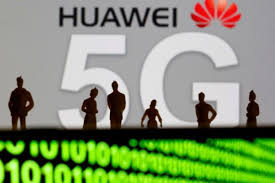Commerce Department Blocks Export Licenses to Huawei Technologies Co., Ltd.

In a controversial decision, on May 15, 2019, the US Commerce Department announced the addition of Huawei Technologies Co., Ltd. (“Huawei”) and 68 affiliates to its Entity List. As a result, export licenses for Huawei are subject to a presumption of denial.
The Commerce Department cited a number of reasons for its decision, including alleged violations of the International Emergency Economic Powers Act (IEEPA), conspiracy to violate IEEPA by providing prohibited financial services to Iran and obstruction of justice in connection with the investigation of those alleged violations of U.S. sanctions. The Commerce Department cited its reasonable belief that Huawei is involved in activities contrary to the national security or foreign policy interests.
Huawei is the largest telecommunications equipment producer in the world. Huawei has been at the center of controversy relating to its relationship and/or connection to Chinese intelligence services.
Under the Commerce Department’s Entity List, a company or person cannot sell or transfer technology to Huawei unless the company or person obtains a license from the Commerce Department’s Bureau of Industry and Security.

Six days later, on May 21, 2019, the Commerce Department announced a relaxation of the licensing policy against Huawei to permit purchases of Huawei equipment for a 90-day period temporary license period, expiring on August 21, 2019. The extension was sought by numerous telecommunications operators in order to make other arrangements.
U.S. suppliers to Huawei include Qualcomm, Intel, Lumentum Holdings and Qorvo. Huawei is still prohibited from buying American-made hardware and software to make new products.
The scope of the ban is still being defined. Under Commerce Department export regulations, the prohibition applies not just to products that are manufactured by Huawei in China, but extends to components, including software and technology used in the manufacturing of products such as smartphones. U.S.-origin goods are defined to include any product manufactured outside the United States, if the foreign manufactured product incorporate more than a de minimis amount of U.S.-origin items. As a result, application of the Huawei prohibition can extend far beyond a prohibition on US exports since the “de minimis” rule will have broad application to products containing U.S.-origin items.
An item is subject to the Commerce Department regulations if it is (a) physically located in the US; (b) of U.S.- origin, wherever located; (c) manufactured outside the US but incorporating more than a de minimis amount of controlled US content (e.g. more than 25 percent for China); and (d) in some cases, foreign product containing certain national security controlled US technology or software.

U.S.-origin software that is incorporated into foreign software and products will still be subject to the license prohibition. The Commerce Department maintains regulations defining software products and exemptions from such licensing requirements. For example, US application developers for Huawei smartphones will likely be subject to the prohibition.
Huawei will face significant difficulties in manufacturing telephone equipment in compliance with US export laws. U.S. export laws apply to US and non-US persons, and violation of the Entity List requirements can result in civil or criminal penalties.
Huawei’s suppliers around the globe will be prohibited from exporting items to Huawei. Companies that are part of Huawei’s supply chain should immediately implement controls to comply with new restrictions because the prohibition extends to any item subject to Commerce Department regulations.















